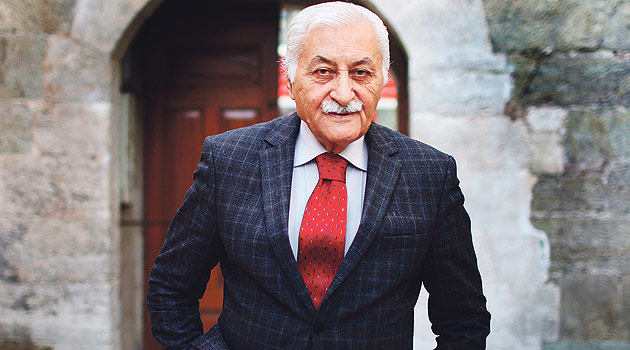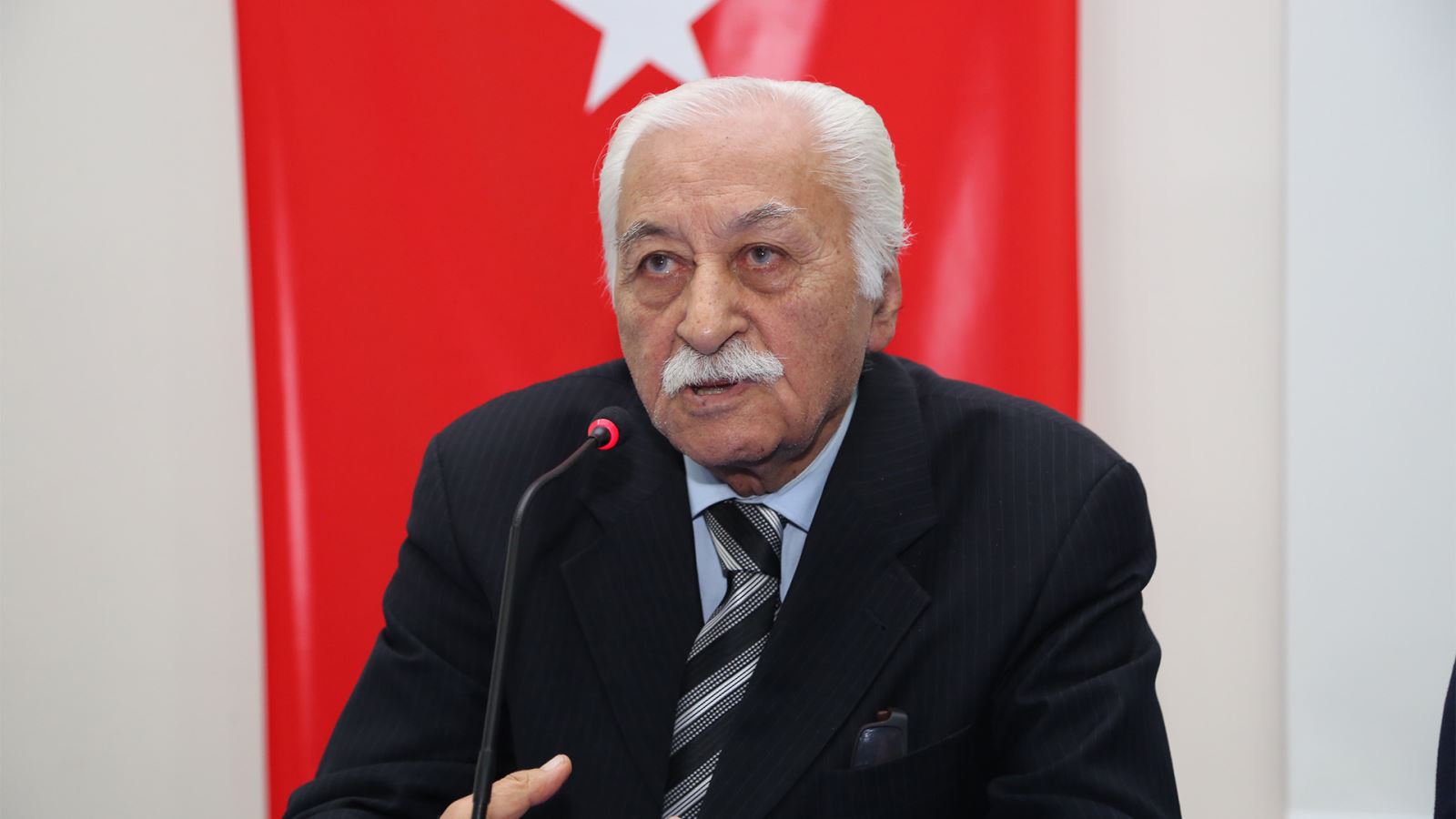Yavuz Bülent Bakiler was born on April 23, 1936. His family migrated from the Karabakh region of Azerbaijan to Anatolia. He completed his primary and secondary education in Sivas and Malatya. In 1960, he graduated from the Faculty of Law at Ankara University.

Yavuz Bülent Bakiler (Turkish Writers' Union)
Professional Career
After completing his education, he worked for a short time at the newspaper Yeni İstanbul. Between 1964 and 1968, he served as a rapporteur at the TRT Ankara Radio Central Program Department, where he prepared and presented various cultural programs. From 1969 to 1975, he practiced law in Sivas. During this time, he also served as the Sivas Provincial Chairman of the Justice Party and was a candidate for both mayor and Member of Parliament. From 1975 to 1976, he worked as a legal advisor at the Prime Ministry’s Land and Agricultural Reform Undersecretariat. He was then employed at Ankara Television from 1976 to 1979. From 1979 to 1980, he served as Deputy Undersecretary at the Ministry of Culture and Tourism. Following the military coup of September 12, 1980, he was appointed as an advisor, a role he continued in until 1992. From 1992 to 1994, he worked as an advisor to the Prime Ministry before retiring in 1994.
Literary Personality and Works
Yavuz Bülent Bakiler's literary career began during his high school years. His first poem was published in the Turkish Art magazine in 1953. His poems focus on the lives of Anatolian people, the issues of the Turkic world, and national and spiritual values. He used a simple and clear style in his poems, written in both traditional and free verse.
Poetry Books
- Loneliness (1962)
- Veil (1971)
- With You (1986)
- Harman (2000)
Travel Writings
- From Skopje to Kosovo (1979)
- Turkestan Turkestan (1986)
Essays and Memoir Books
- Mother in Our Poetry (1976)
- Poem to Sivas (1973)
- Aşık Veysel (1986)
- Elçibey
- The Contemporary Turkey Ideal in Mehmet Akif (1990)
- The Truth of Words 1-2 (2002)
- Love Letters
- After Those Who Left
- The Grandeur of Arif Nihat Asya
- Those I Couldn't Forget
- Those in My Heart and Others
- Those I Remember
Awards and Achievements
Yavuz Bülent Bakiler has made a name for himself in the world with the awards he has won. He has won numerous awards for his poems and literary contributions and has secured an important place in literary circles.
- 1986 - Turkish Language Association Poetry Award
- 1992 - National Culture Foundation Literature Award
- 1999 - Folk Poetry Award
- 2003 - Great Turkish Poetry Award
- 2022 - Culture and Arts Grand Awards
Literary Style and Themes
Yavuz Bülent Bakiler's literary style is seen as an original approach that combines traditional and modern poetry. While using a language rooted in the folk poetry tradition, he also turned to contemporary understanding. The main themes in Bakiler's poems are:
- Folk Culture and Tradition: Bakiler conveyed messages in a social context using a language and style that came from the essence of folk poetry. His poems frequently featured Turkish folk culture and traditional elements.
- Social Criticism and Justice: His works often questioned social inequalities, injustices, and unfairness. He presented in-depth observations of the hardships faced by individuals in the lower classes of society.
- Individual Freedom and Human Rights: Bakiler constantly addressed themes of human rights and freedoms in his poems, emphasizing the individual's place in society and their search for identity.
- Nature Descriptions: In his poems, elements of nature are frequently used as a reflection of the human soul, establishing a strong relationship between nature and humanity. This relationship is explored in depth in Bakiler's poems.
- Love Descriptions: His poems feature themes of love and affection. Instead of the physical attributes of the lover, the emotional and spiritual effects they evoke are in the foreground. In this aspect, love is sometimes a city, sometimes a longing, and sometimes a symbol of a divine quest. Descriptions of love are blended with elements of nature, longing, expectation, and inner conflicts, adding a profound lyricism to his poems.
Yavuz Bülent Bakiler's Station and You Poem and Story
Social and Cultural Contributions
In addition to his contributions to literature, Yavuz Bülent Bakiler's role in cultural projects is also noteworthy. Bakiler, who strengthened his ties with literature and introduced Turkish culture to the world, also contributed to literary magazines and brought his poems to a wider audience. In his poems, he glorified the culture of the people and tried to make their voice heard in society.
He also holds an important place in the literary world with his essays and articles on social issues. He is known for his work in preserving the cultural identity, folk literature, and traditions.
Political Views and the Impact of Literature on Society
Yavuz Bülent Bakiler's literature aimed to address the transformation processes in society and the defense of individual rights. His poems sometimes contain political criticism; he clearly demonstrated his stance against social inequalities and injustices. Bakiler's poetic understanding is based on universal values such as freedom, and justice.
His comments on the role of literature in social changes and the language he used while criticizing the political structure in society have led to him being remembered as a strong social figure.

Yavuz Bülent Bakiler (A View from Süleyman Demirel University's Talk)
Legacy and Influence
Yavuz Bülent Bakiler's literary legacy holds an important place in Turkish literature. With both his contributions to folk poetry and the innovations he brought to the modern poetic understanding, he has been a source of inspiration for later generations. His works have played a significant role in shaping Turkish literature, and his unique style has been emulated by many young poets.
Bakiler's poems have left a profound impact not only in the literary world but also in society, affecting different segments of the population. His literature has made a significant contribution to the preservation and perpetuation of Turkish folk culture, and his works will remain an important cultural heritage for future generations.



